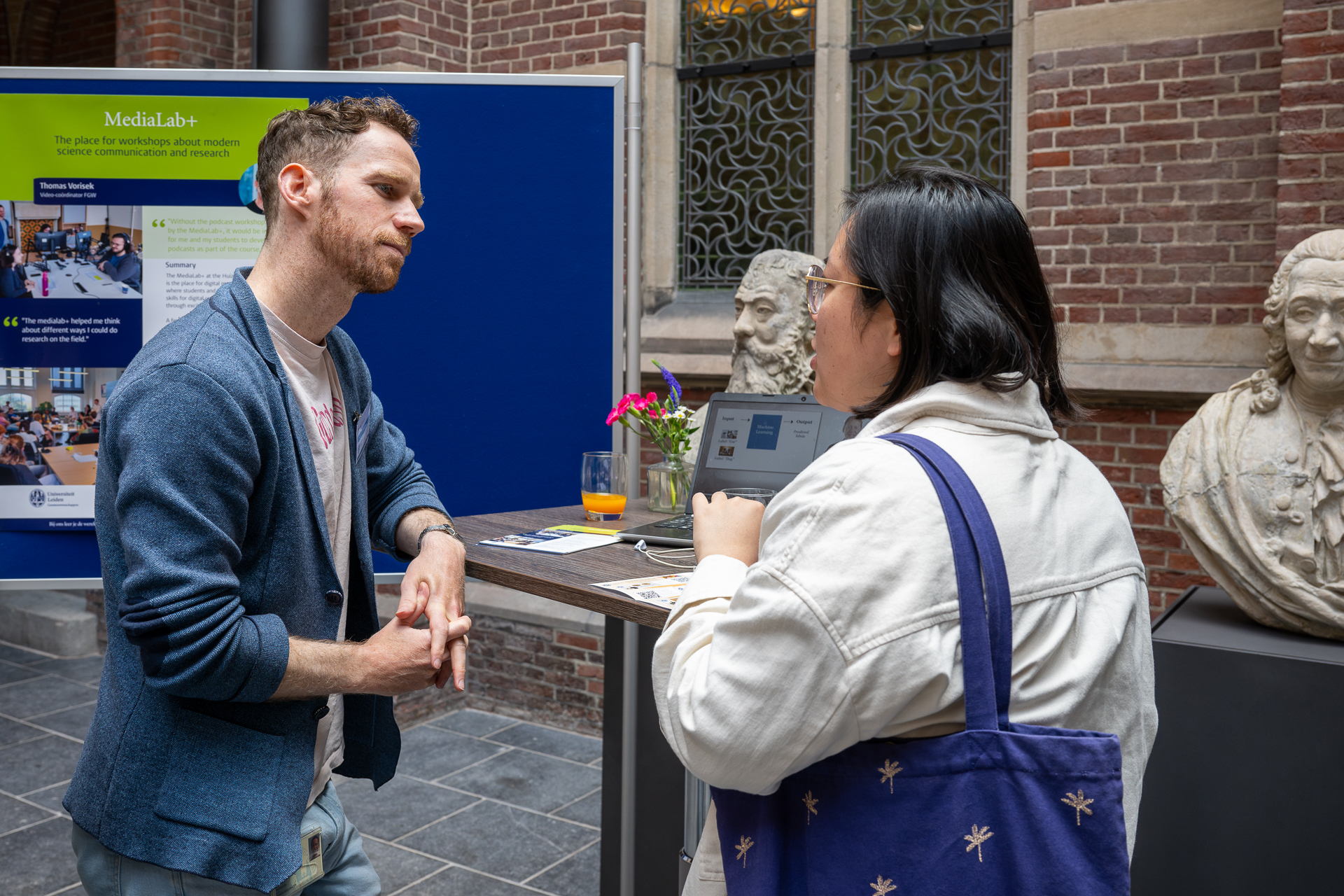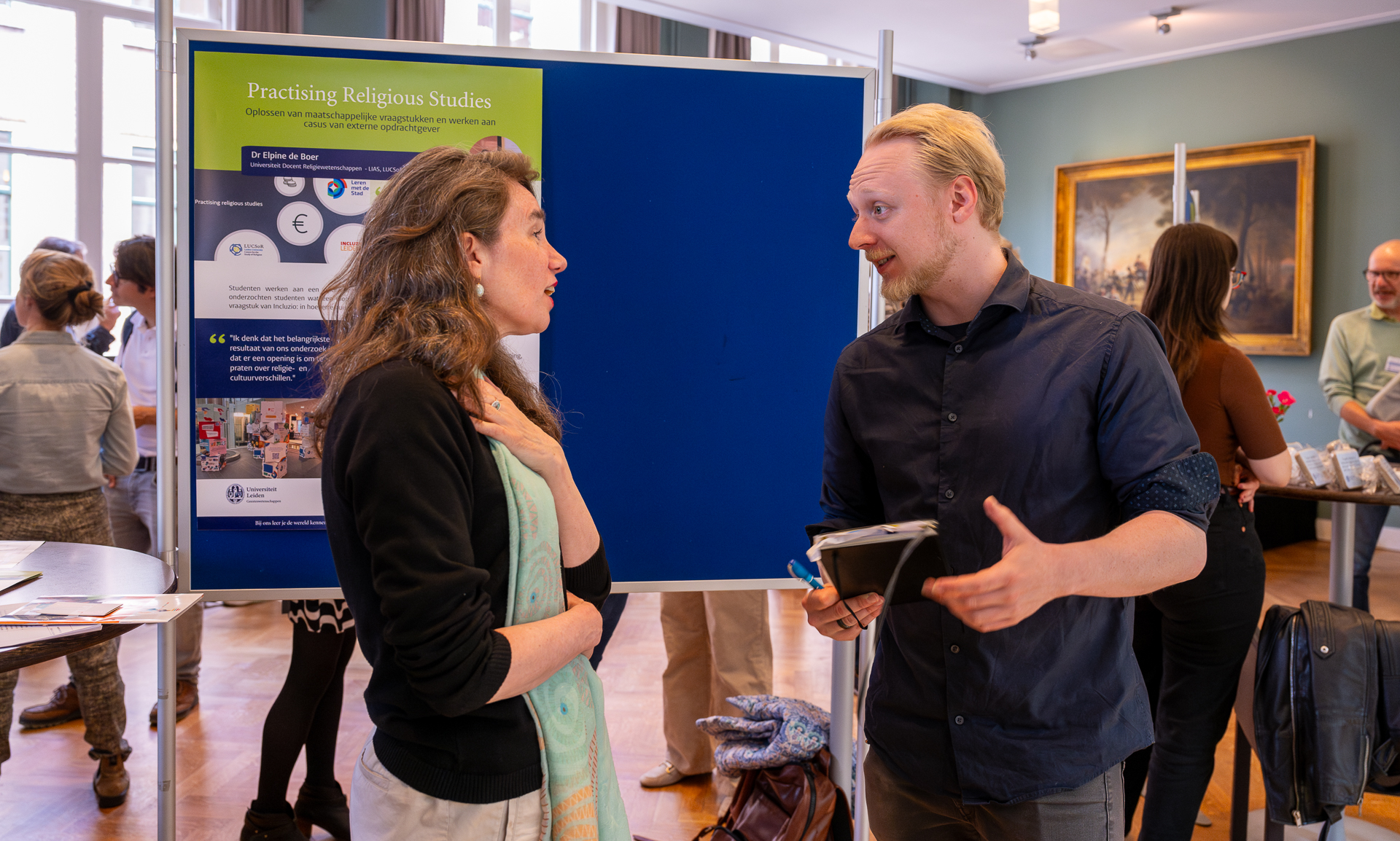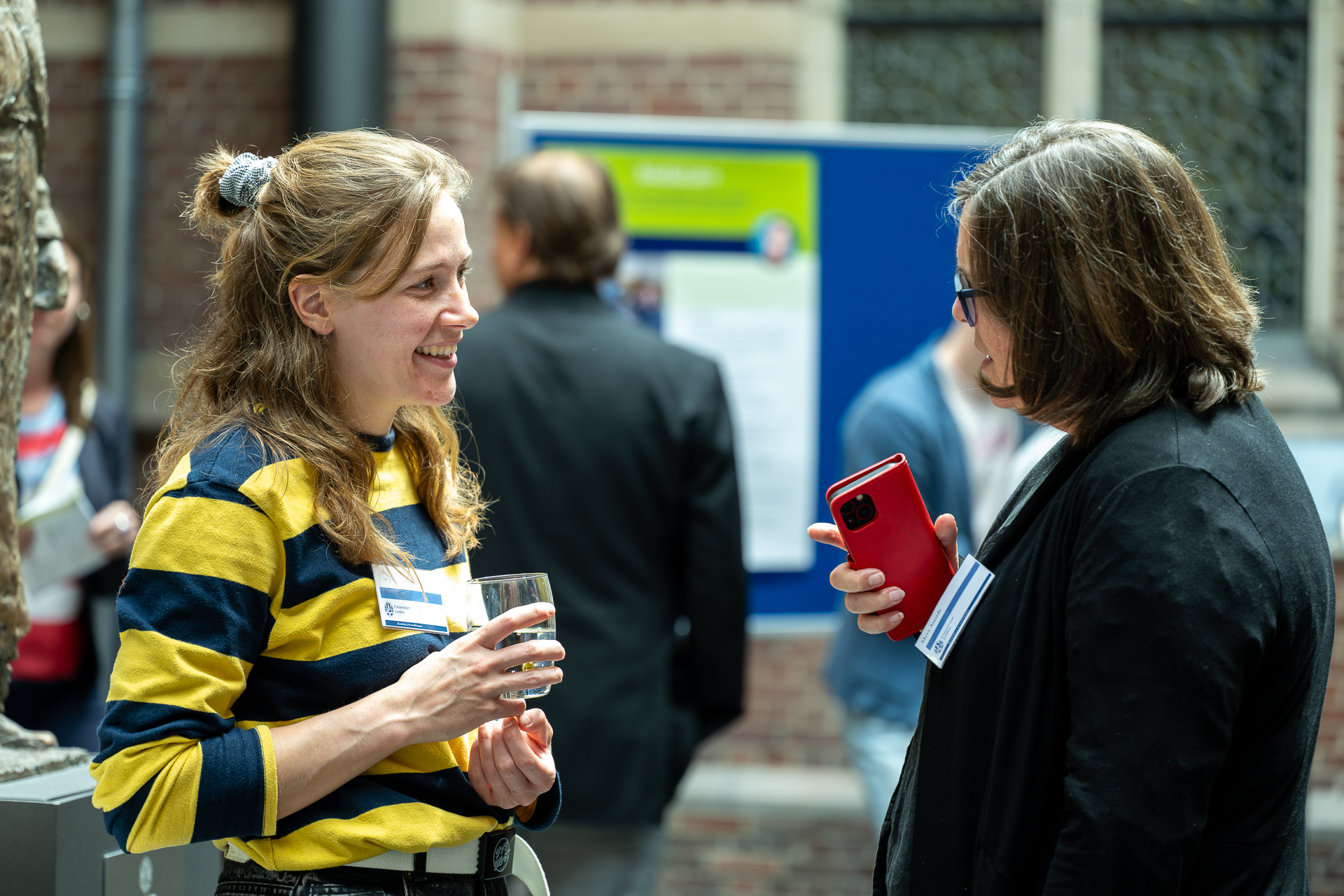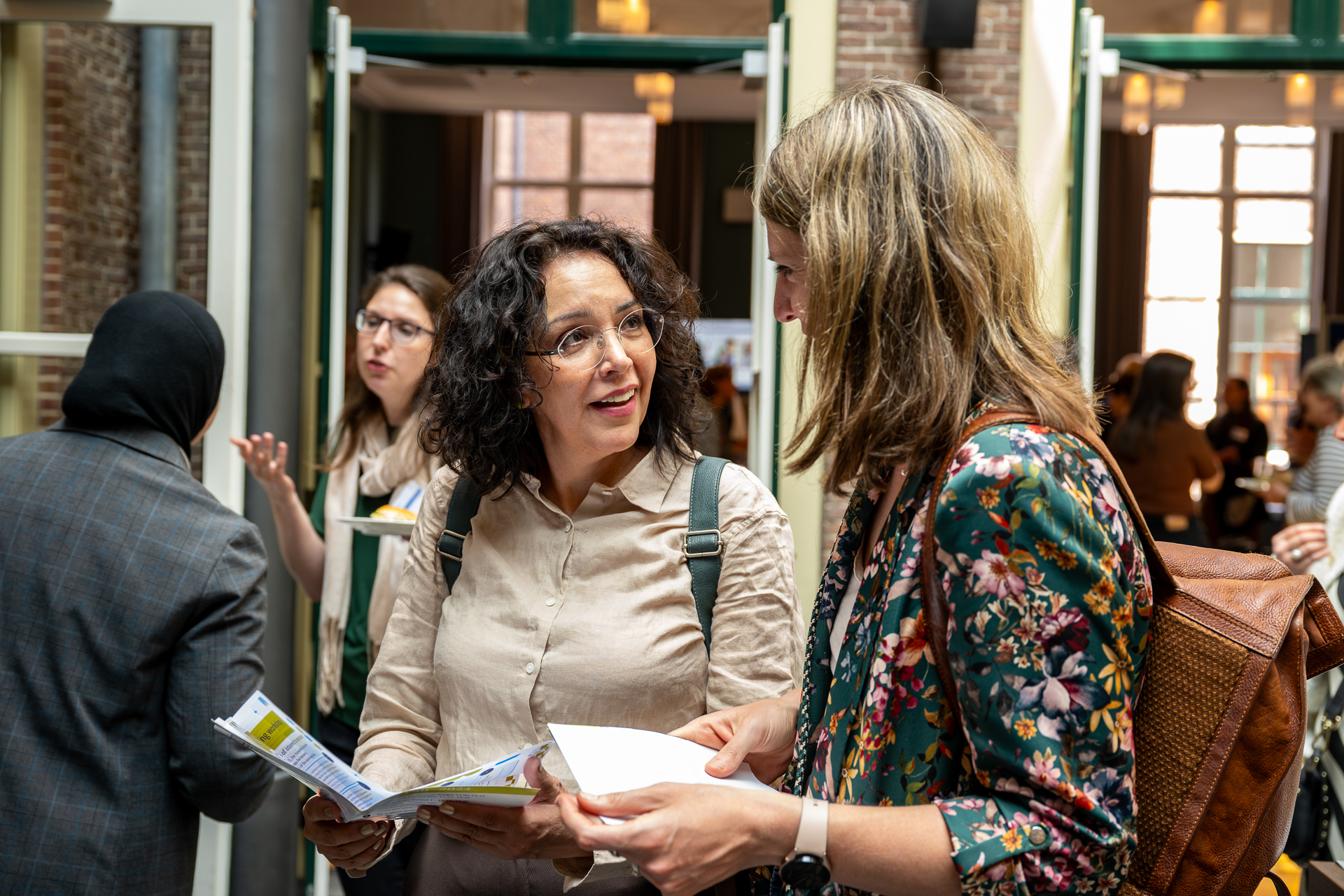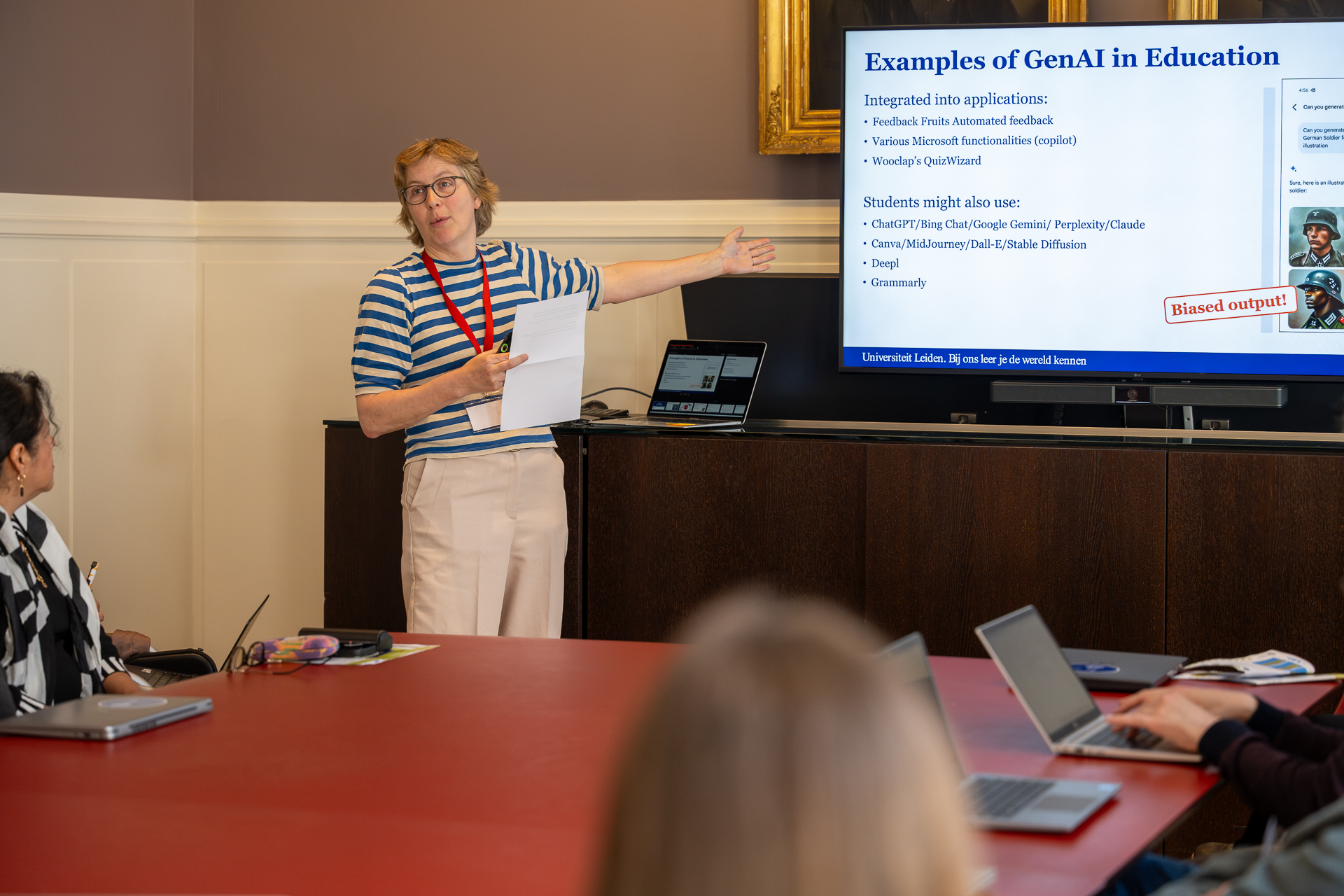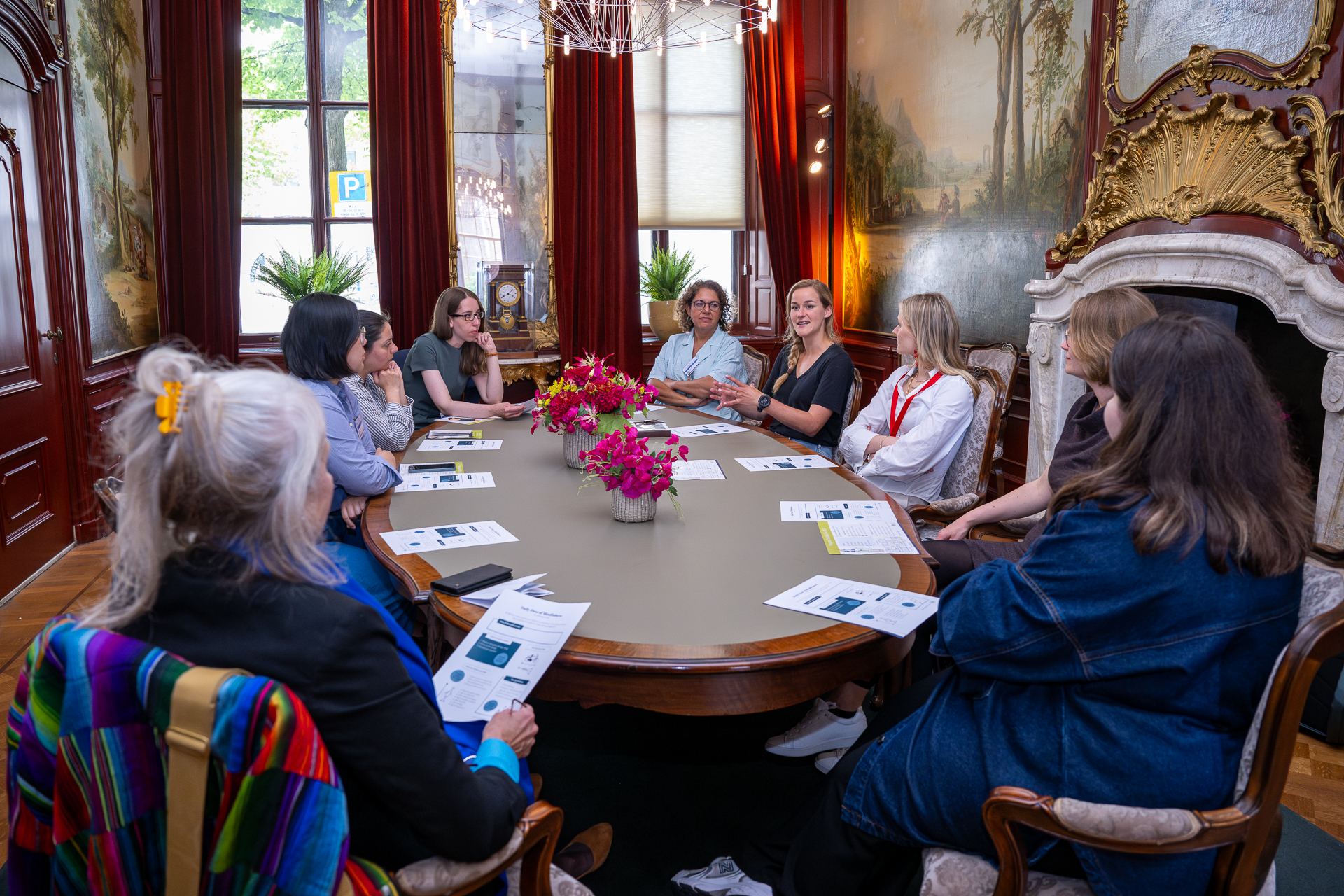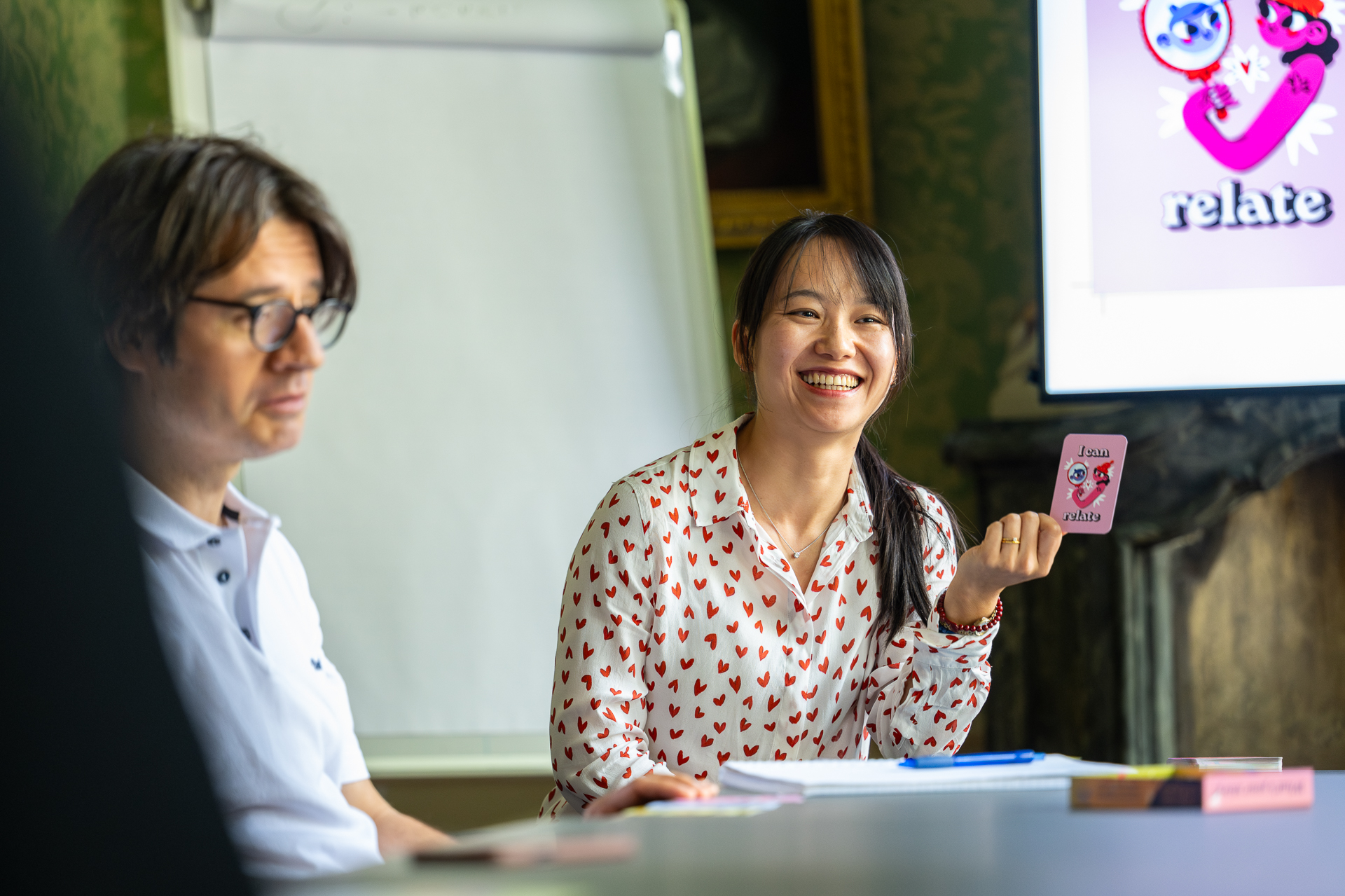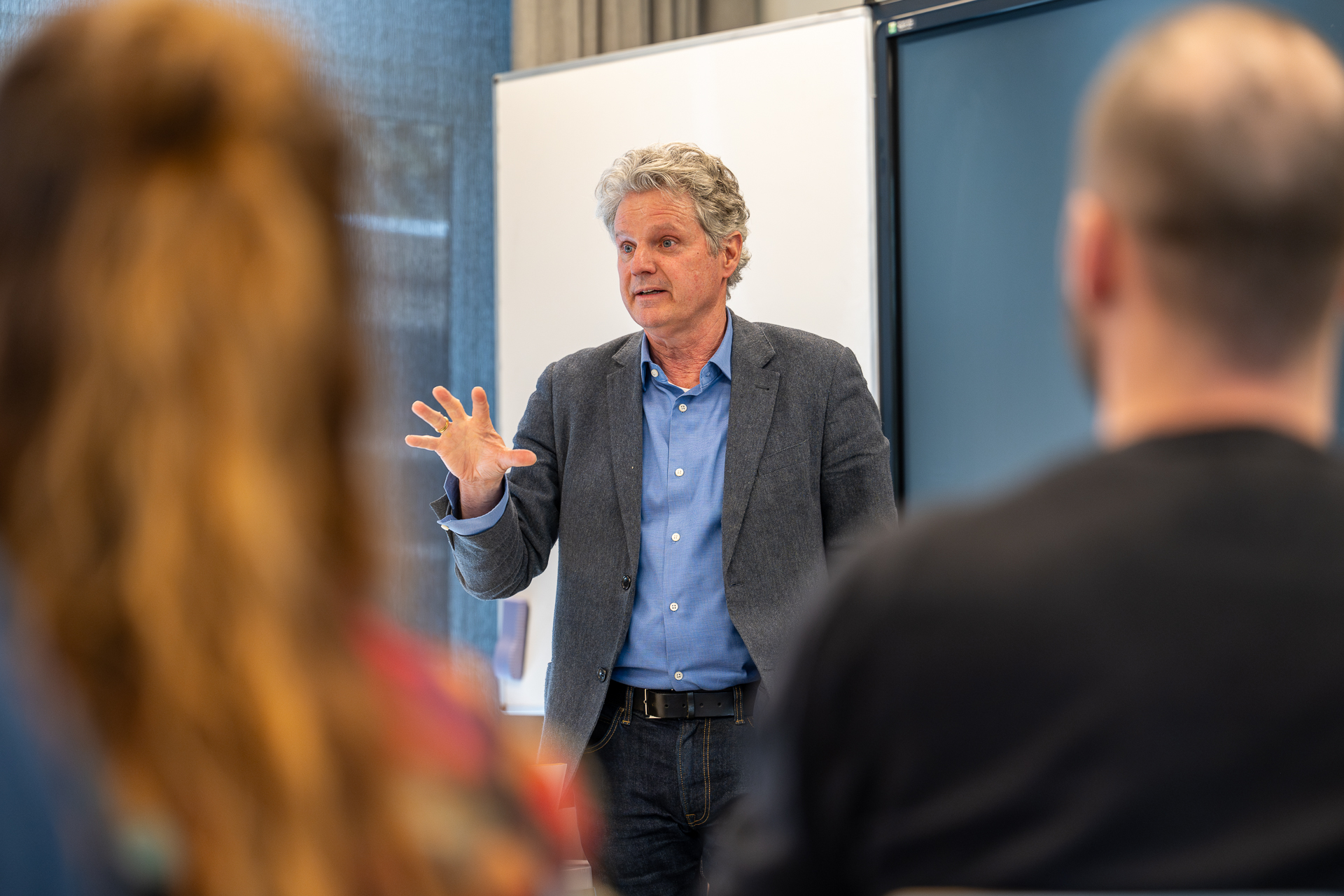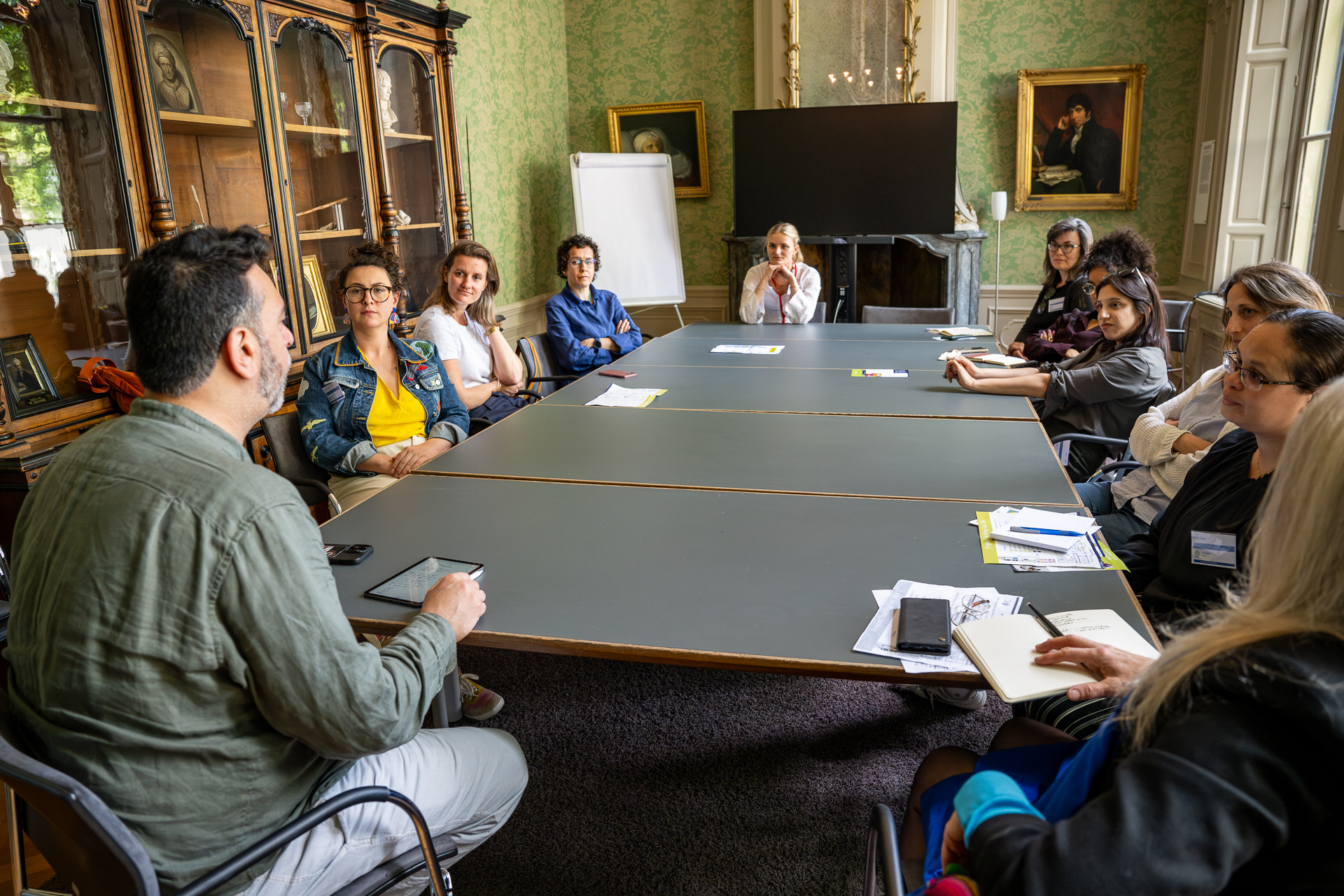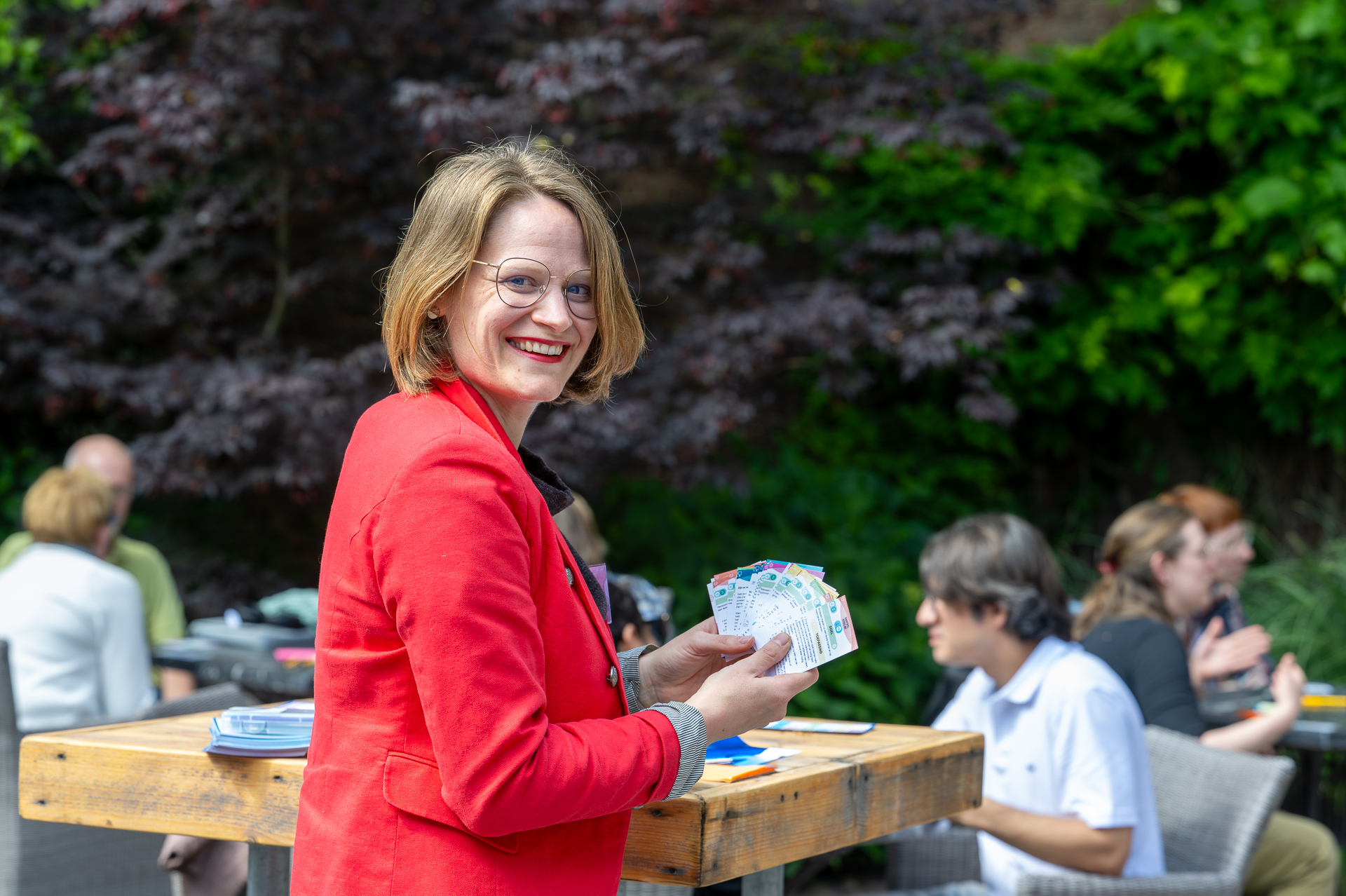
This was the Teaching Fair: ‘A great way to encourage teachers to explore possibilities’
During the annual Teaching Fair, teaching staff in the Faculty of Humanities met up to exchange tips & tricks and attend workshops.
After lunch and the opening address by Prof. Maurits Berger on academic activism and integrity, the participants dispersed around the information market, where they could speak with one another about the various initiatives for educational innovation.
Making new contacts and catching up
‘My main reason for coming here is to meet colleagues,’ says lecturer Francisco Alonso. ‘At the moment, I mostly know my colleagues in International Studies. This is a good opportunity to meet other people and to see what else is happening within the faculty.’
Prof. Nivja de Jong also took advantage of the opportunity to strengthen contacts with colleagues. ‘We’ve done a lot of catching up. Not about what we did at the weekend or whatever, but about what we’re doing. I now know that they’re going to organise an expertise afternoon on multilingualism. I will definitely be going to that.’
Educational innovation
University lecturer Raymond Fagel, on the other hand, is on a fact-finding mission. ‘I’m going to become a member of the faculty’s Education Committee in September. I thought this would be a good starting point to see how things are done outside of History. Something I particularly noticed in these presentations is that students often have to use modern technology to make videos, for example. This raises the question of how I should assess them, if I can’t actually make videos myself. I’d still like to get an answer to that, although I’m already pleased to have learned more about the new testing system the faculty is going to have.’
‘That’s good to hear,’ replies Jitske Angenent, a digital assessment coordinator, whose role at the information market is to explain to teaching staff how the migration from Remindo to ANS will work. ‘We’re trying to build a bridge between what people want and what the system’s possibilities are. It is always nice to hear from teachers what their wishes are and even nicer when we see that we can realise them in the new system.’
Workshop on qualitative data and AI
Further along in the room, educational adviser and researcher Mario de Jonge is eating a sandwich. ‘At ICLON we’ve developed an alternative way to evaluate courses,’ he says. ‘At the moment, people often use Likert scales, but research has shown that this method isn’t especially reliable. In our version, students can give written feedback on various points, and AI then summarises what they’ve written. I hope the people here find that interesting as well, because I’m just about to give a workshop on the subject.’

